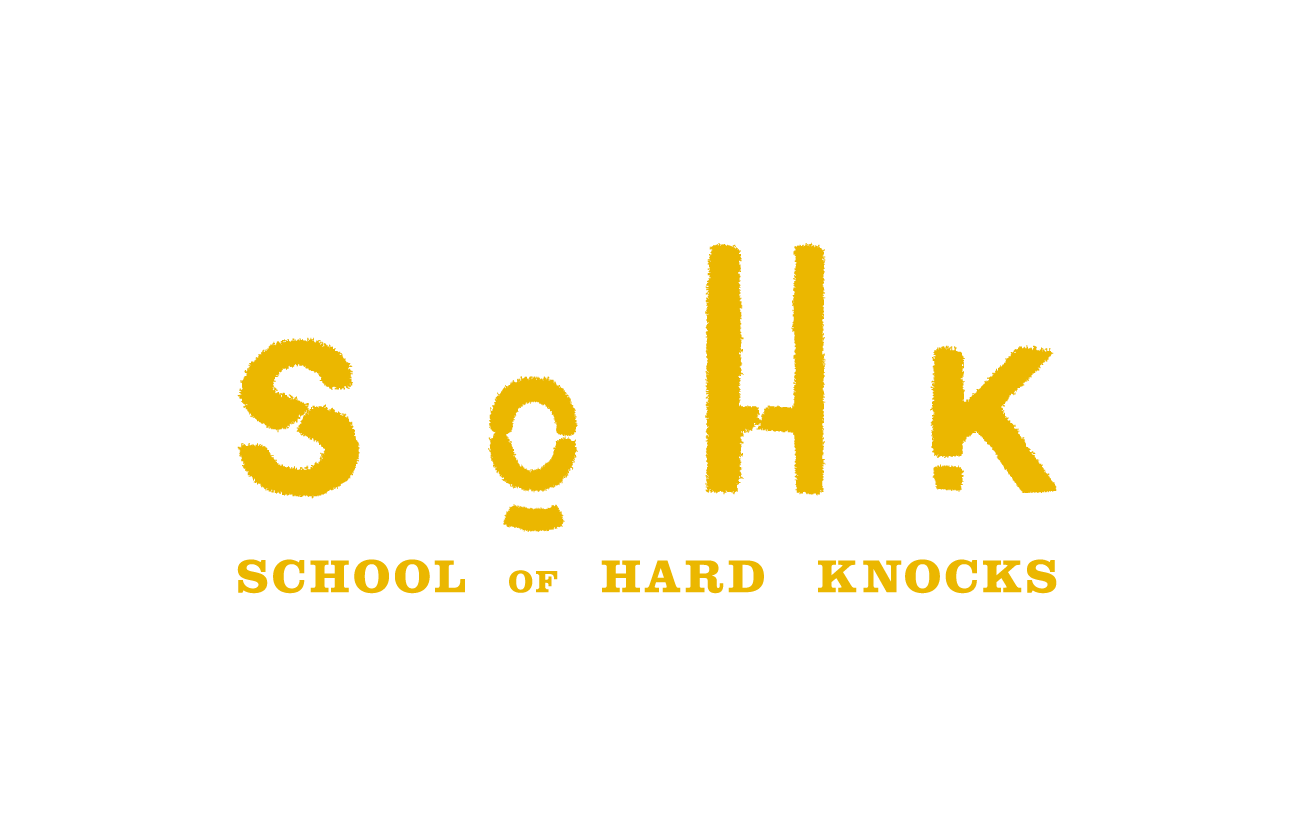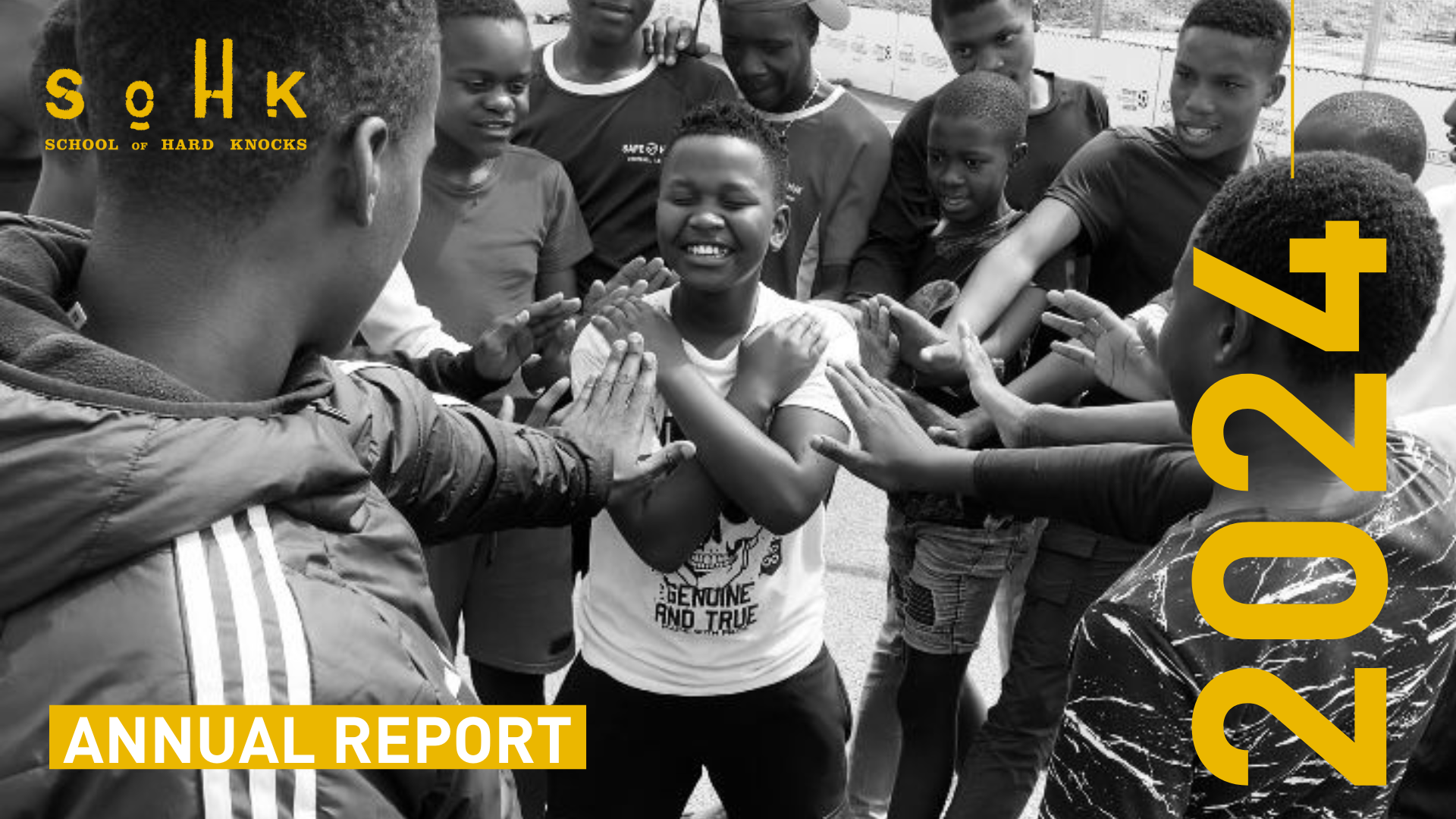At School of Hard Knocks (SOHK), we’re often asked why we spend so much time focusing on mental health, emotional regulation, and social connection — especially in schools where academic performance and discipline are often the top priorities.
Our answer is simple: before a child can learn, they must first feel safe.
Mental health isn’t a luxury add-on in education — it’s the very foundation for any meaningful growth. If we don’t prioritize emotional safety, resilience, and connection, then everything else — math, science, life skills — becomes noise that young people can’t tune into.
This blog explores why supporting the whole person — their mind, emotions, and relationships — is the key to unlocking their whole potential, and how schools can become not just institutions of learning, but ecosystems of healing and hope.
The Inner World of a Learner
Imagine waking up each morning not knowing whether there will be food on the table, if the adults in your home will be angry, absent, or overwhelmed. Imagine walking to school past violence, or being bullied by classmates without anyone stepping in. Now imagine being expected to concentrate, perform, behave, and "do your best" all day.
For many students in the communities SOHK serves, this isn’t imagination — it’s reality.
Mental health challenges for young people don’t always show up as tears or withdrawal. They show up as “acting out,” zoning out, or shutting down. And when those behaviors are met with punishment instead of compassion, we lose the opportunity to reach the person behind the problem.
The truth? What we call “behavior” is often communication — and every child deserves to be heard.
From Survival to Stability: Why Mental Health Work Matters
When we step into a school with SOHK’s programs — whether it’s our year-long embedded model, our NxtGenMen masculinity workshops, or our NxtGenWomxn DBT-based resilience sessions — we’re not just bringing tools. We’re bringing a new way of seeing learners.
Here’s what we know:
Learners can’t access executive function (i.e., critical thinking, self-regulation, focus) when they are in a state of constant stress.
Trauma-informed education helps restore safety in the body and mind, which is a precondition for engagement.
When we normalize conversations around emotions, mental health, and wellbeing, we create communities where students can thrive — not just survive.
Mental health work isn’t soft. It’s structural. And it changes outcomes.
SOHK’s Framework for Wellbeing: The Core Pillars
Through our work in schools, we’ve identified five key pillars that support learner wellbeing and development. These aren’t just theories — they are the principles that inform every game, every group circle, and every one-on-one check-in we do.
1. Connection Over Correction
Young people don’t change because we tell them to. They change because they feel seen, supported, and safe.
At SOHK, we emphasize relationship-based work. Our coaches and lay-counselors are consistent, trauma-informed adults who build real trust over time. This alone can be life-changing for learners who have never felt emotionally safe with an adult before.
Correction without connection breeds resistance. But connection creates space for growth.
2. Emotional Literacy is Essential
How can we expect learners to regulate their emotions when no one has taught them what those emotions are?
We teach students how to name what they feel — anger, shame, sadness, fear — and then offer healthy ways to manage those emotions: through movement, breathwork, expression, and connection. In NxtGenWomxn, for example, we use DBT techniques like distress tolerance and mindfulness to help girls build real-world emotional tools.
Because emotional intelligence isn’t an extra skill — it’s a life skill.
3. Movement as Medicine
We use sport — particularly rugby — as more than just physical training. It’s a metaphor for life. Rugby teaches teamwork, resilience, structure, and control of aggression. It provides a healthy outlet for stress and rage — which many of our boys, in particular, are carrying but don’t know how to express.
Even during the COVID-19 lockdown, we distributed home workouts and movement challenges to keep students physically and emotionally regulated. Movement reduces cortisol, boosts serotonin, and fosters confidence.
4. Circle Work and Safe Expression
Our group circles give learners a space to speak — and a space to be heard.
In a world that often silences young people, especially those from marginalized communities, these circles become sacred. We discuss themes like identity, masculinity, peer pressure, grief, and hope. We listen without judgment. We validate without fixing.
This builds emotional safety and social cohesion — the foundation for true transformation.
5. Goals, Growth, and Belief
Every learner in our program sets personal goals. Not just academic goals, but emotional and behavioral ones. We help them define who they want to become — and then walk beside them as they take small steps each week.
Because when someone believes in you — truly, consistently — it changes what you believe is possible for yourself.
What Schools Can Do Right Now to Support Mental Health
You don’t have to be a therapist to create a mentally healthy environment. You just have to be intentional. Here are 6 actions schools can start taking today:
Create Calm Zones: Designate a quiet space on campus where learners can go when they’re overwhelmed.
Train Staff in Trauma Awareness: Help teachers understand the signs of trauma and how to respond compassionately.
Run Morning Check-ins: Even a quick “How are you, really?” circle can set the tone for the day.
Model Healthy Emotional Expression: Adults who are calm, vulnerable, and respectful model this for learners.
Normalize Help-Seeking: Post mental health resources and encourage students to speak up.
Celebrate Progress, Not Perfection: Growth isn’t linear. Acknowledge small wins and resilience.
The Power of Safeguarding Leads
We can’t talk about school mental health without lifting up the safeguarding leads — the backbone of learner wellbeing.
These are the people who hold disclosures of abuse, who notice the quiet child falling through the cracks, who chase down referrals, comfort the hurting, and keep students safe. They are often the first and last line of defense for a child in crisis.
Every school needs one. Every safeguarding lead needs support.
Looking Ahead: Why Whole-Person Work is the Future of Education
We are moving into a new era of education. One where learners are not seen as empty vessels to be filled, but as complex beings with stories, emotions, and limitless potential.
At SOHK, we are part of that shift. And so are the schools we partner with.
When we invest in the emotional health of our learners — when we prioritize mental wellbeing alongside academics — we aren’t just helping them cope. We are helping them lead.
We are shaping future community leaders, healers, innovators, and change-makers.
Not in spite of their pain — but because they were supported through it.
Closing Thoughts
Supporting the mental health of young people isn’t an afterthought. It’s not optional. It’s foundational. And it takes all of us — teachers, safeguarding leads, nonprofits, parents, and peers — to do this work well.
At SOHK, we believe every young person deserves to be seen. To be safe. To be supported.
Because when we care for the whole person, we unlock the whole potential.
Want to get involved?
Donate, volunteer, or bring SOHK to your school.
Visit www.schoolofhardknocks.co.za or follow us on Instagram @sohk_sa.








